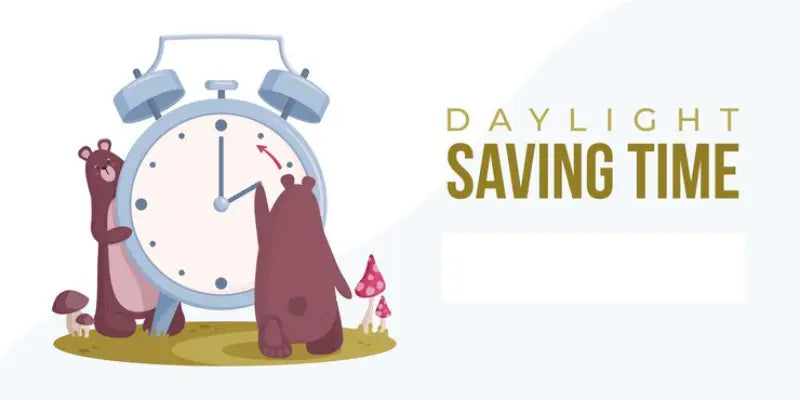
The Impact of Sleep on Your Blood Glucose Levels
Your sleep is directly connected to your health, whether it be your weight, your immune system, even how well your brain works. But you should be surprised to know that it also plays a key role in controlling your blood sugar (or glucose) levels and vice versa. Sleep and blood glucose level have a bidirectional relationship between each other. Sleep will impact your glucose level and glucose level will impact your sleep.
People with uncontrolled glucose levels can have difficulty sleeping. In this blog, we’ll explore how sleep affects your blood glucose levels, how to control sugar and offer practical tips to ensure you're getting the right amount of sleep.
How Sleep Affects Your Blood Glucose
Sleep plays an important role in controlling your blood sugar levels. When you sleep, your body works to repair tissues and balance hormones, including insulin, which helps move glucose from your bloodstream into your cells to be used for energy.
But poor sleep can mess with insulin, making it less effective and causing blood sugar levels to rise. If you don’t get enough sleep, especially less than 6 hours a night, your body can become less responsive to insulin, a condition called insulin resistance, which can lead to higher blood sugar over time and even increase the risk of type 2 diabetes.
Sleep deprivation also raises levels of cortisol, the stress hormone, which makes it harder for insulin to do its job. On top of that, lack of sleep can mess with the hunger hormones in your body, causing you to feel hungrier and eat more sugary or fatty foods, which can lead to glucose spike or blood sugar spike. For people with diabetes or at risk of it, this can make controlling blood sugar even harder.
How Does Blood Glucose Affect Sleep?
Blood glucose level can affect your sleep and can make it hard for you to fall asleep at night. If your blood sugar level is too high (hyperglycemia), you will more likely to feel restlessness, frequent urination and thirst, and all this can make it hard for you to fall asleep. On the other hand, if your blood sugar level is low (hypoglycemia), it can cause sweating, shaking and anxiety, which can also keep you awake and make it hard for you to fall asleep.
If you have a stable blood glucose level, you will feel relaxed and sleep better at night. This is because your body doesn’t have to work hard to regulate sugar levels during the night.
Also Read:- How to Lucid Dream: 5 Effective Methods
How to Control Blood Sugar
To lead a healthy life, it is very important to control blood sugar levels in your body.
Here are some ways to control blood sugar:
Eat a Healthy Diet
To control blood sugar, you need to be specific about your food choices. You need to choose foods that are lower in calories, saturated fat, sugar, and salt. You can consume a variety of fruits, vegetables, lean proteins, whole grains and legumes, all these help you manage glucose spikes.
Exercise Regularly
Regular physical activities are often recommended by doctors to control blood sugar spike. If you do some exercise every day, it can help your body burn off sugars and use insulin better. Try to aim for at least 150 minutes of moderate aerobic activity per week, such as walking, biking or dancing.
Stay Hydrated
Keeping your body hydrated is important for a healthy life. Try to drink at least 2-3 liters of water every single day. Drinking water is better than drinking juice or soda. Drying fresh fruit juice gives you an instant sugar spike which makes you sleepy. You can take hot liquid if you want to reduce snacking as it can make you feel full.
Get Enough Sleep
Poor sleep is linked to higher sugar levels where good sleep is linked to regular sugar levels. If you don’t sleep well at night, it can lead to sugar spikes at night whereas if you are diabetic, it can make it hard for you to fall asleep fast. Adults should aim for 7 to 8 hours of high quality sleep per night.
Limit Sugary Drinks
You must have noticed it for yourself, when you drink something sugary like fresh fruit juice or any sugary drink, it instantly leads to a glucose spike in your body. To control sugar spike, you can limit sugary drinks as they are high in calories and low in nutrition.
Eat Foods Rich in Fiber
Foods that are high in soluble fiber can slow down your digestion and help in controlling blood sugar levels. Foods that are high in soluble fiber include apples, bananas, oats, peas, black beans, lima beans, Brussels sprouts, and avocados.
Eat Foods Rich in Chromium and Magnesium
It is seen that chromium and magnesium may help regulate blood sugar levels. Foods that are high in chromium include chicken, turkey, whole grains, green beans, apples, and almonds.
Also Read:- 10 Foods That Help You Sleep Better
Conclusion
Sleep isn’t just important for how we feel day-to-day, it’s a main factor in maintaining healthy blood glucose levels. Poor sleep can lead to insulin resistance, increased hunger, and higher blood sugar, all of which can increase your risk of developing type 2 diabetes. By getting enough restorative sleep, improving your sleep quality, and addressing sleep disorders, you can better manage your blood glucose levels and support your overall health.








